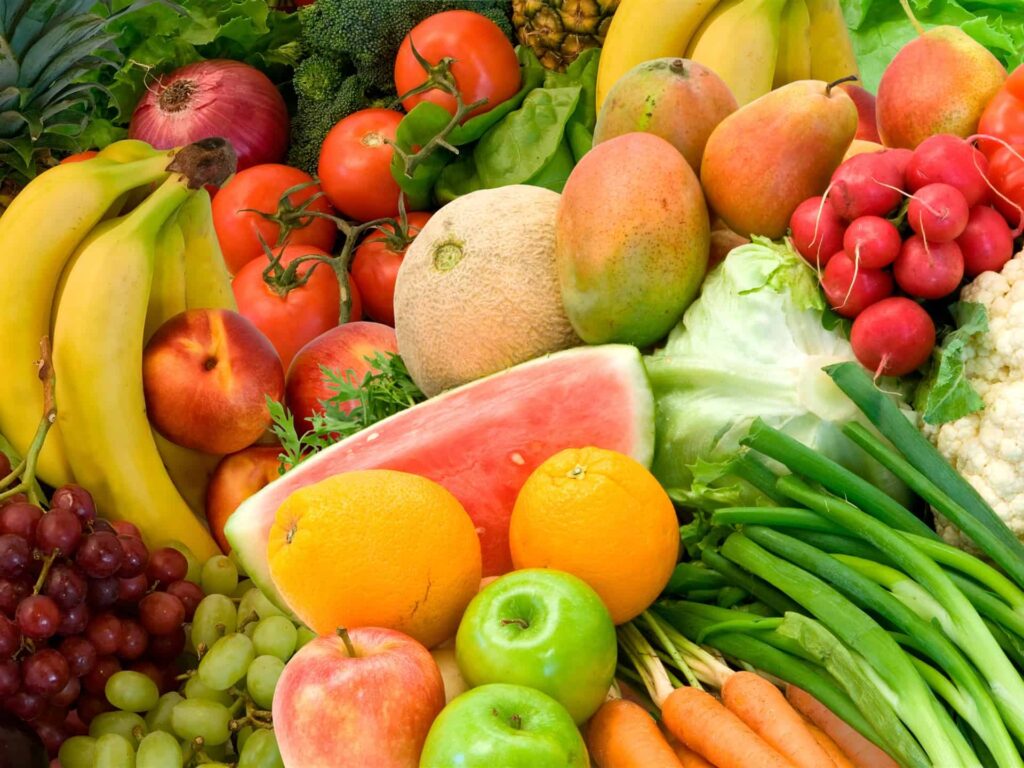Certification of vegetables and fruits
NEED HELP WITH CERTIFICATION?
Certification of vegetables and fruits

Vegetables and fruits belong to the category of plant food products, which, according to the current regulatory and legislative acts, cannot be sold on the territory of the EAEU without passing the certification procedure. During the verification of the IP, it is necessary to confirm the compliance of the declared product with the current standards and requirements.
Particularities of the procedure.
Certification of vegetables and fruits, except for those grown exclusively for personal needs, is designed to prevent stale, low-quality fruit and vegetable products from entering domestic shelves.
Plant products are covered by several TR CU relating to:
– food safety (021/2011);
– requirements for labeling food products (022/2011);
– safety of natural juices, nectars, other juice-containing drinks (023/2011);
– production of products containing food additives – preservatives, flavors, dyes (029/2011).
A declaration of conformity for vegetables or fruits is issued for a specific product according to the classification, which is based on codes of foreign economic activity.
Various types of fruit and vegetable products are subject to verification:
- canned;
- fresh;
- frozen;
- semi-finished products;
- dried fruits.
An authorization document confirms that fruit or vegetable products do not contain harmful, potentially hazardous substances.
The declaration for vegetables and fruits is issued for a period of one year.
Failure to obtain a permit may result in:
- substantial fine,
- confiscation of a consignment of goods,
- suspending a workflow.
In addition to declaration of conformity, the manufacturer, supplier or seller may require a quarantine or phytosanitary certificate (if export is planned).
For certain categories of goods, you need to issue a certificate of state registration (SGR).
This requirement applies to fruit and vegetable products:
- entering the consumer market for the first time;
- intended for the nutrition of children;
- containing genetically modified additives.
According to the provisions of regulation 021, one of the prerequisites for organizing the production process at food industry enterprises is the development and implementation of the principles of the HACCP management system.
What is required to pass the test.
Only a resident of the EAEU, an individual entrepreneur or a legal entity, can become the initiator of an audit.
A citizen of another state can apply for the declaration of goods only through an official representative registered in one of the countries participating in the Customs Union.
The process of obtaining permits begins with the preparation of a set of documents, which includes:
- a written application, drawn up according to the established model;
- copies of registration certificates (TIN, OGRN);
- extract from the Unified State Register of Legal Entities
- constituent, statutory documentation, card of the applicant company;
- a detailed description of the product indicating the distinctive properties and qualities for accurate identification;
- acts of inspection control of the enterprise;
- normative and technical documentation, on the basis of which the production process is organized (GOSTs, TS);
- previously issued certificates;
- contract for the supply of a consignment of goods, specification of the contract, invoice, information about the manufacturer (for imported products).
The list can be shortened or expanded, depending on the specifics of production and the characteristics of the declared products.
Registration procedure.
Certification of vegetables and fruits takes place in a certain sequence:
- Applying for an audit.
- Product identification, selection of evaluation scheme.
- Providing a package of required documents.
- Transfer of standard samples for study and testing in the laboratory.
- Organization and conduct of tests, examinations.
- Drawing up a final protocol based on the results of the studies.
- Inspection control of production (if it is provided by the selected scheme).
- Registration of the declaration.
- Entering information about certification in the unified state register.
- Issuance of the completed document to the applicant.
After registration of all mandatory permits, an individual entrepreneur can apply for an additional check in the GOST R system.
A voluntary quality certificate helps to increase the competitiveness of the product and consumer demand.
By clicking Submit, you agree to Fresh Consulting’s Privacy Policy.
COMPANIES WHICH TRUST MASTCERT
